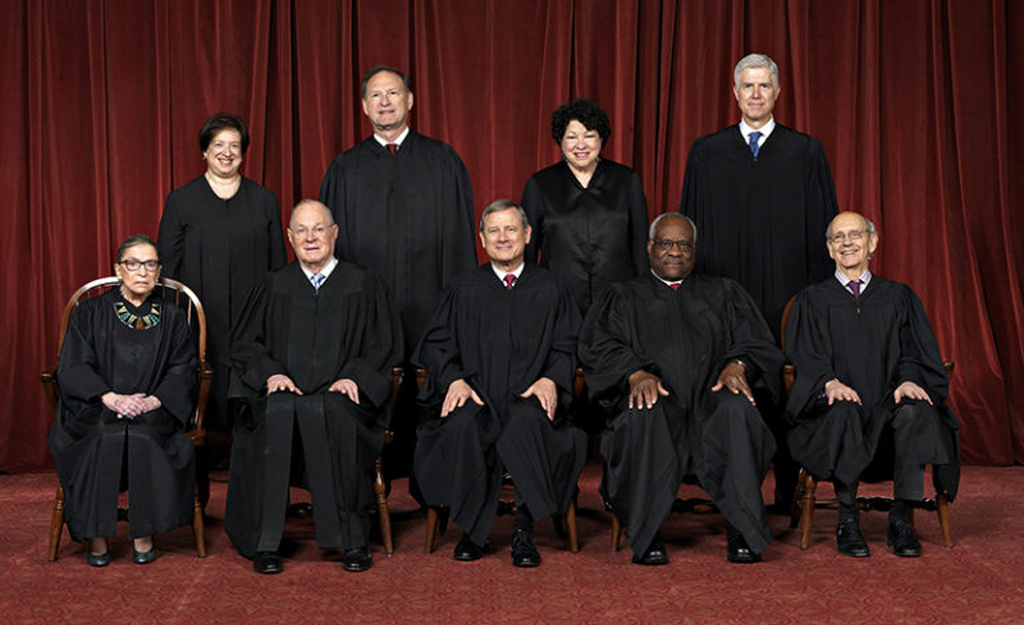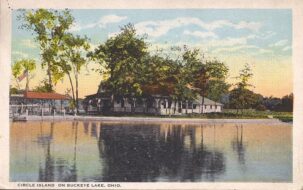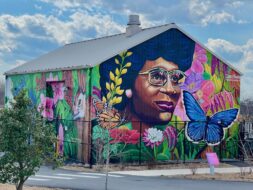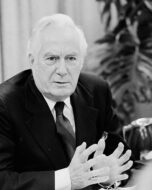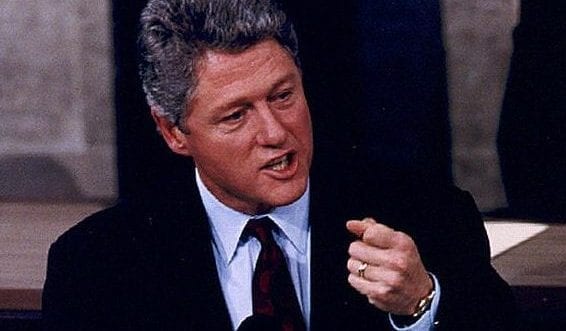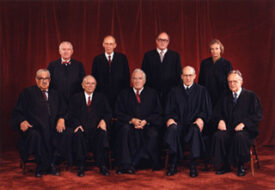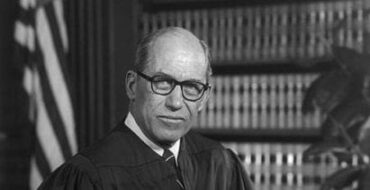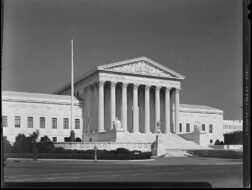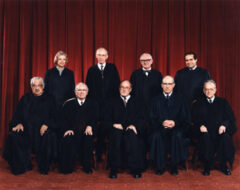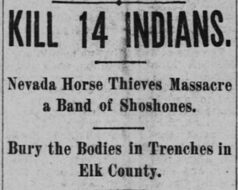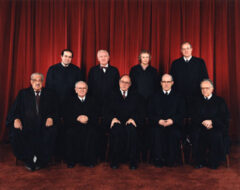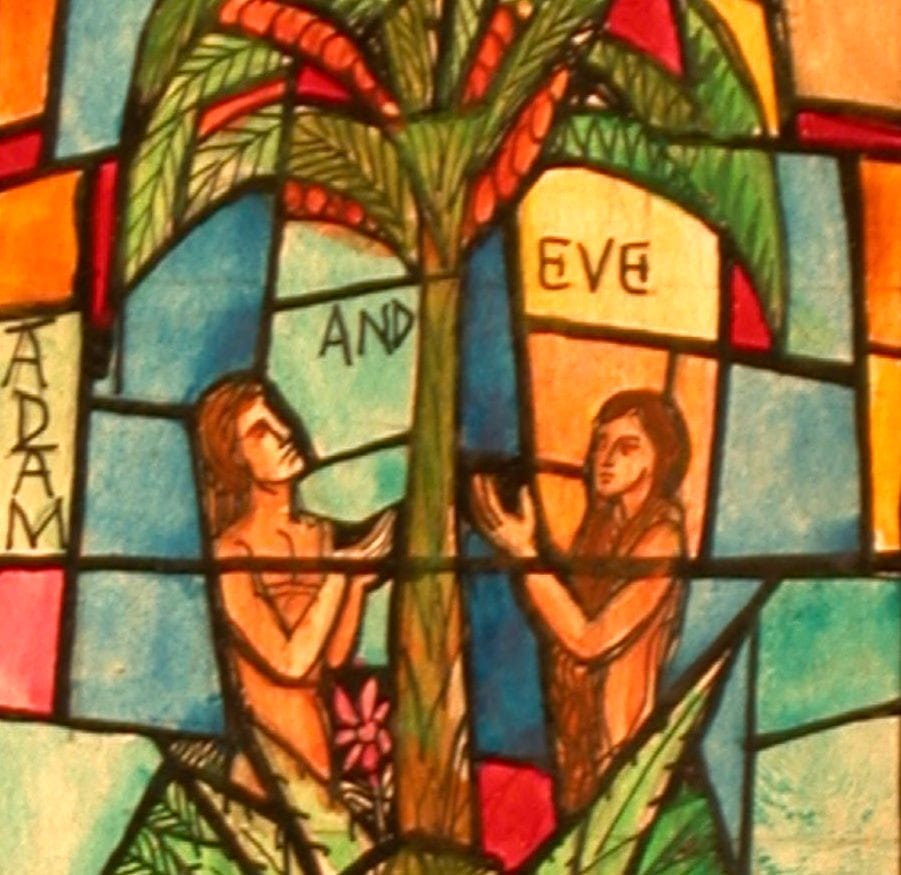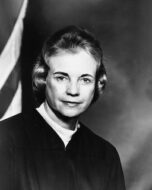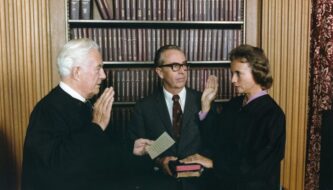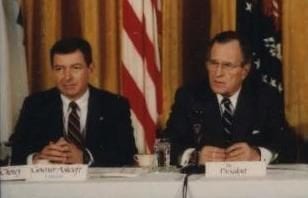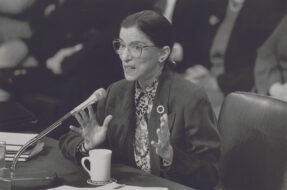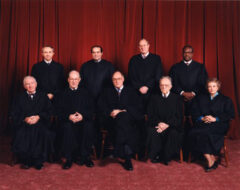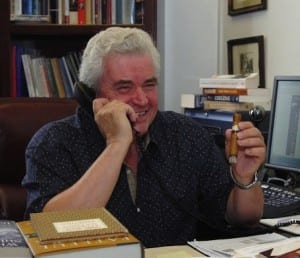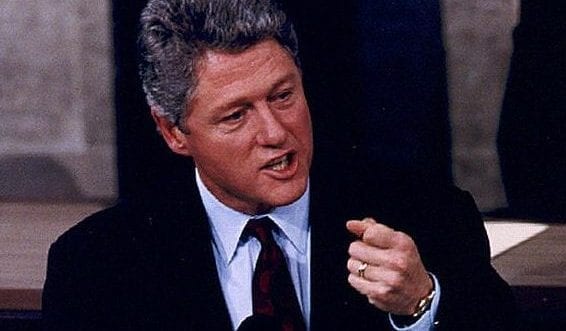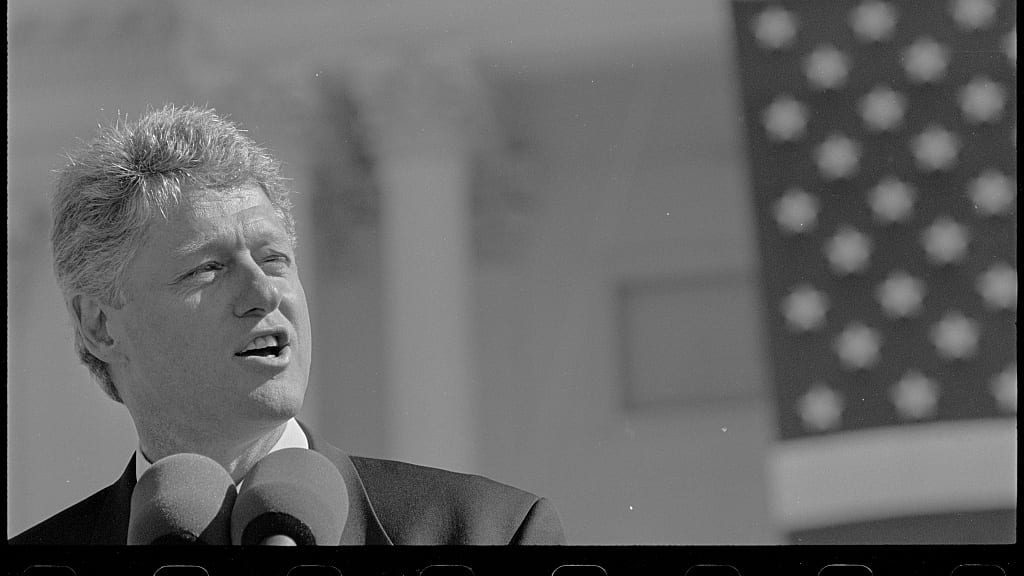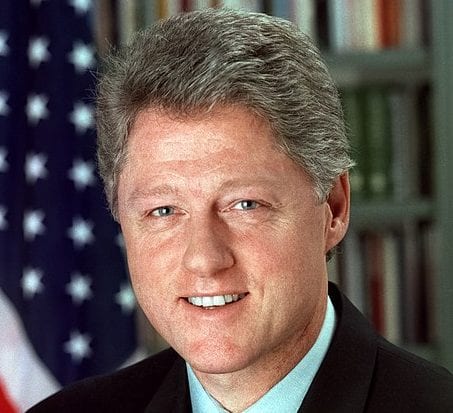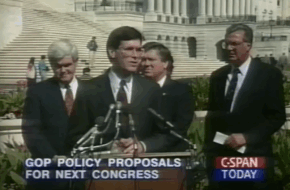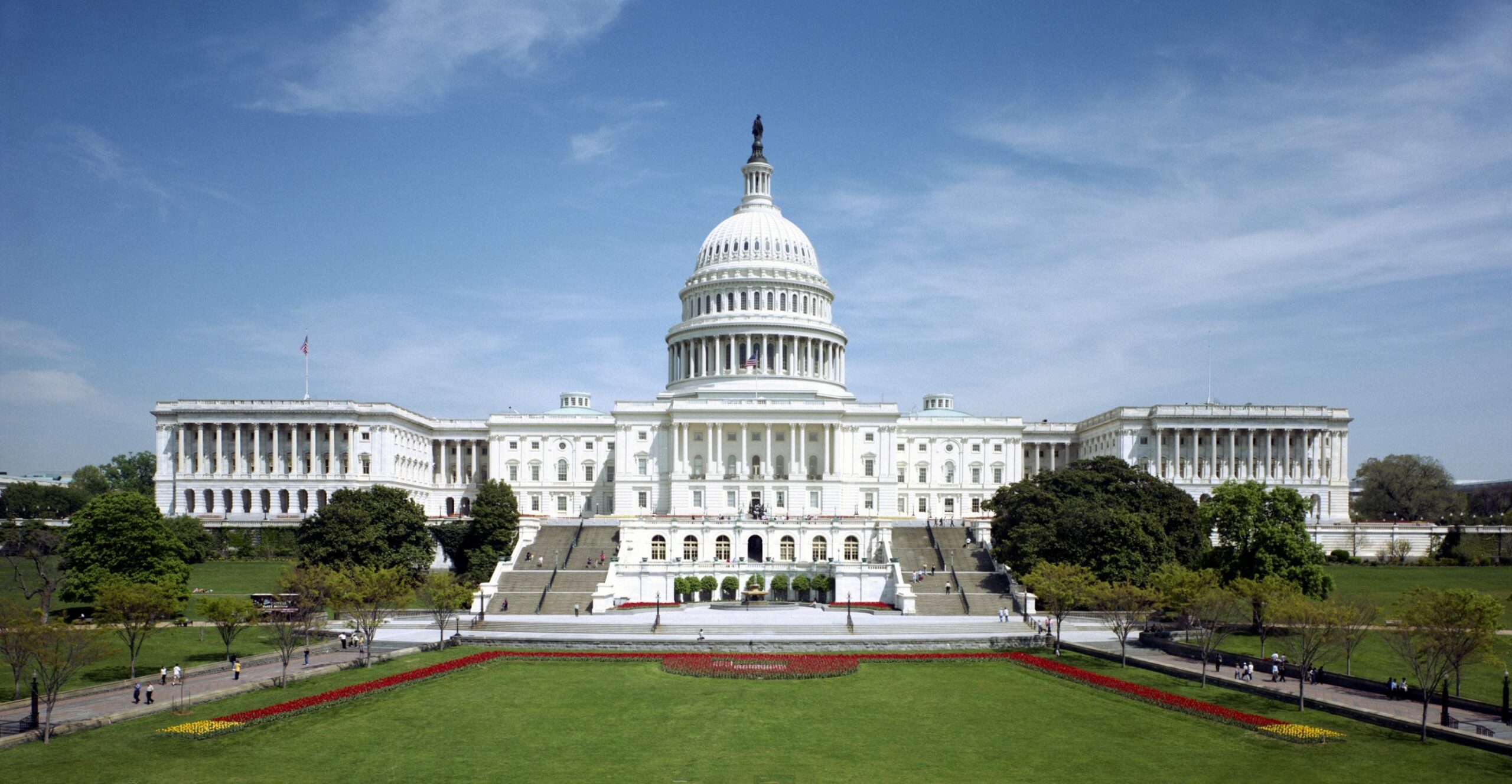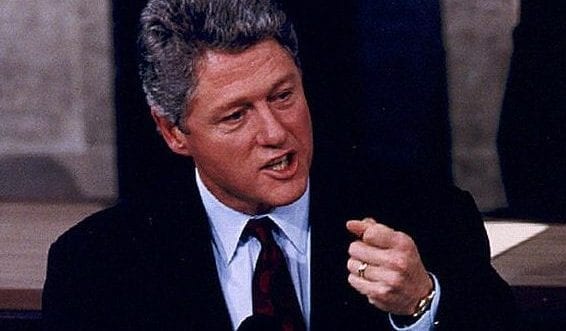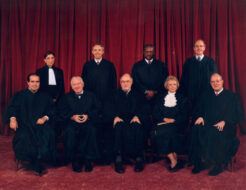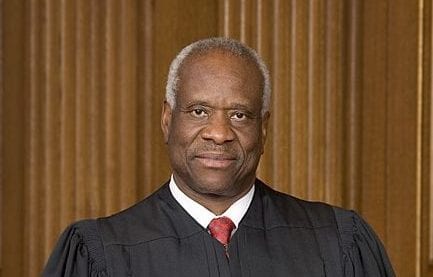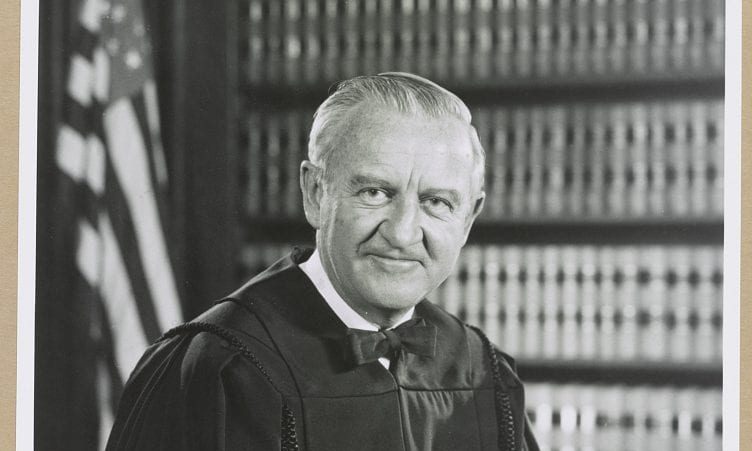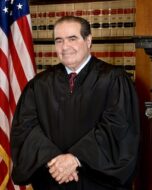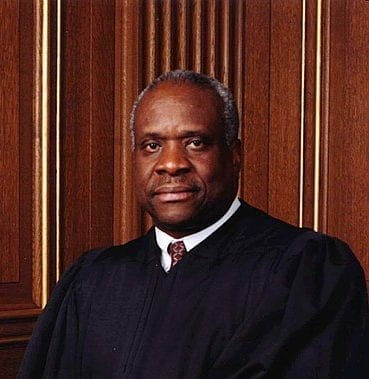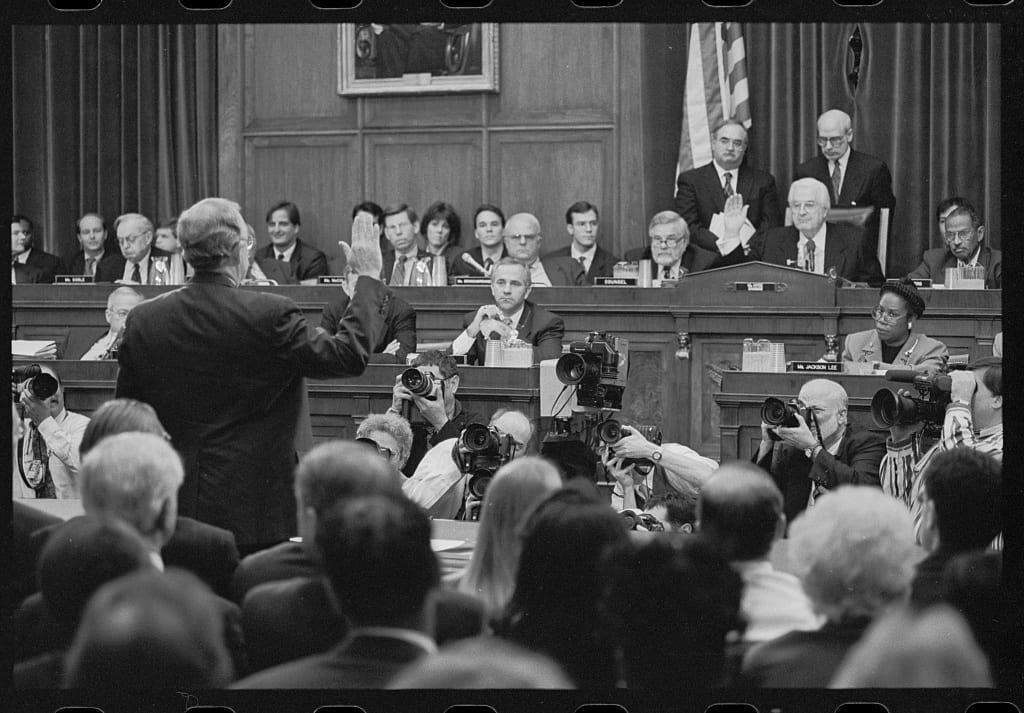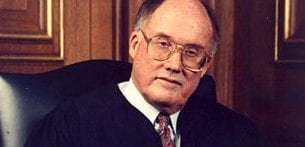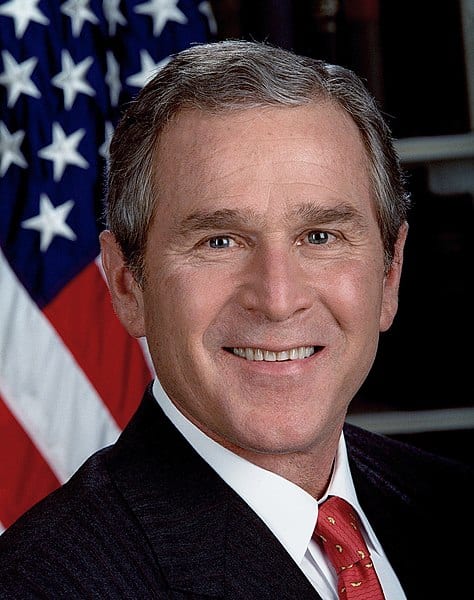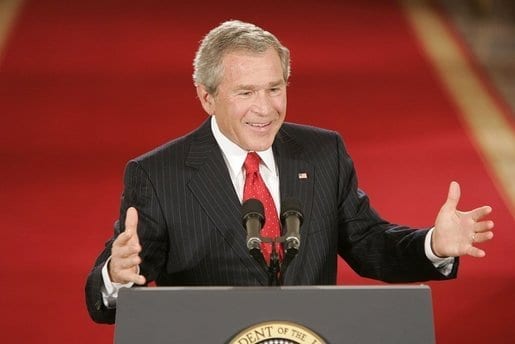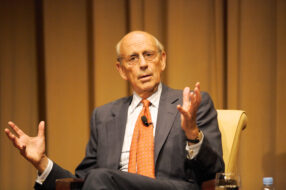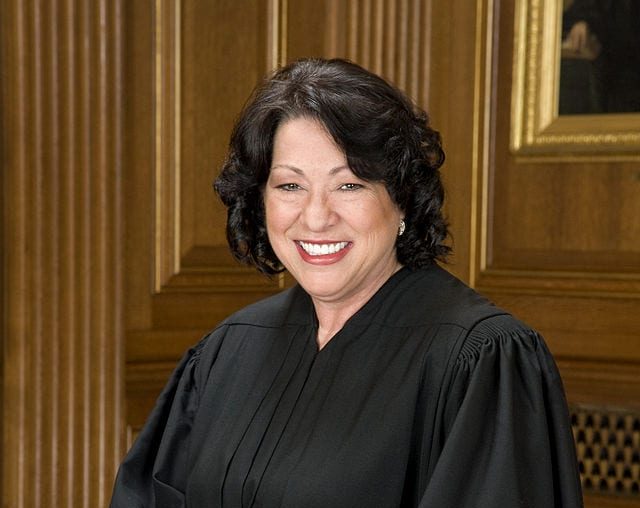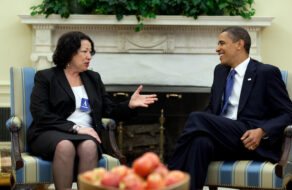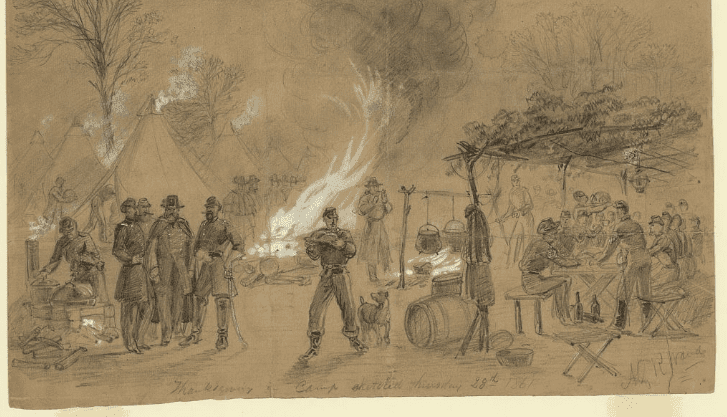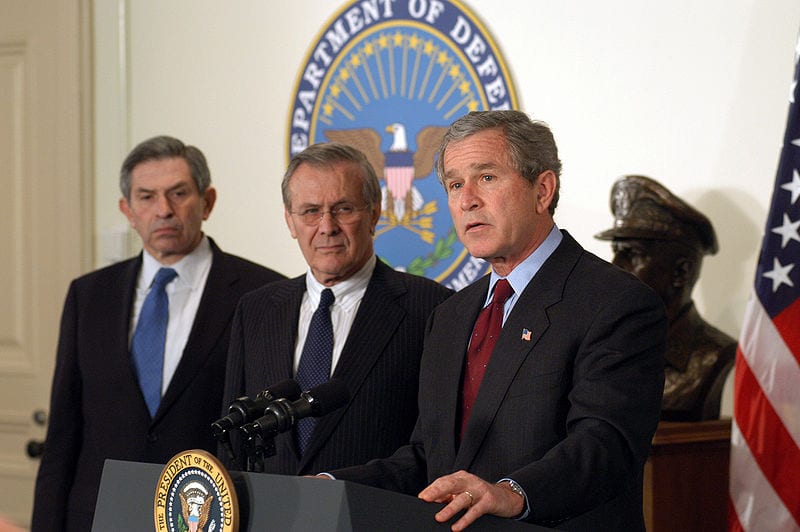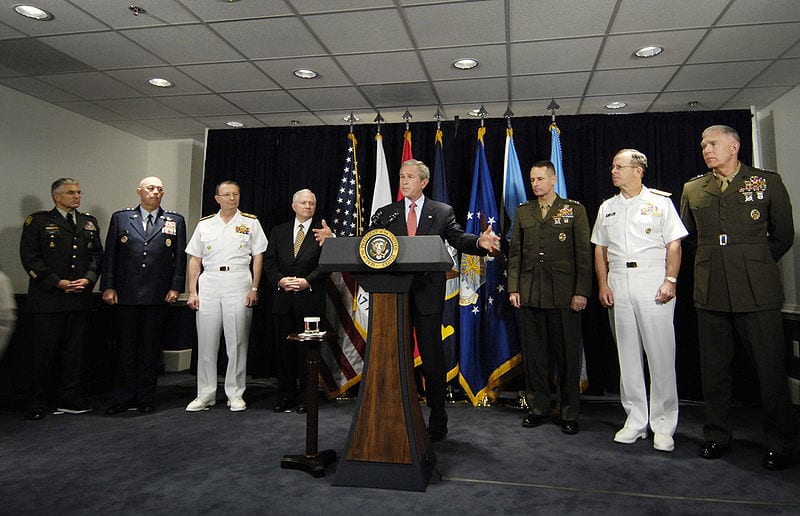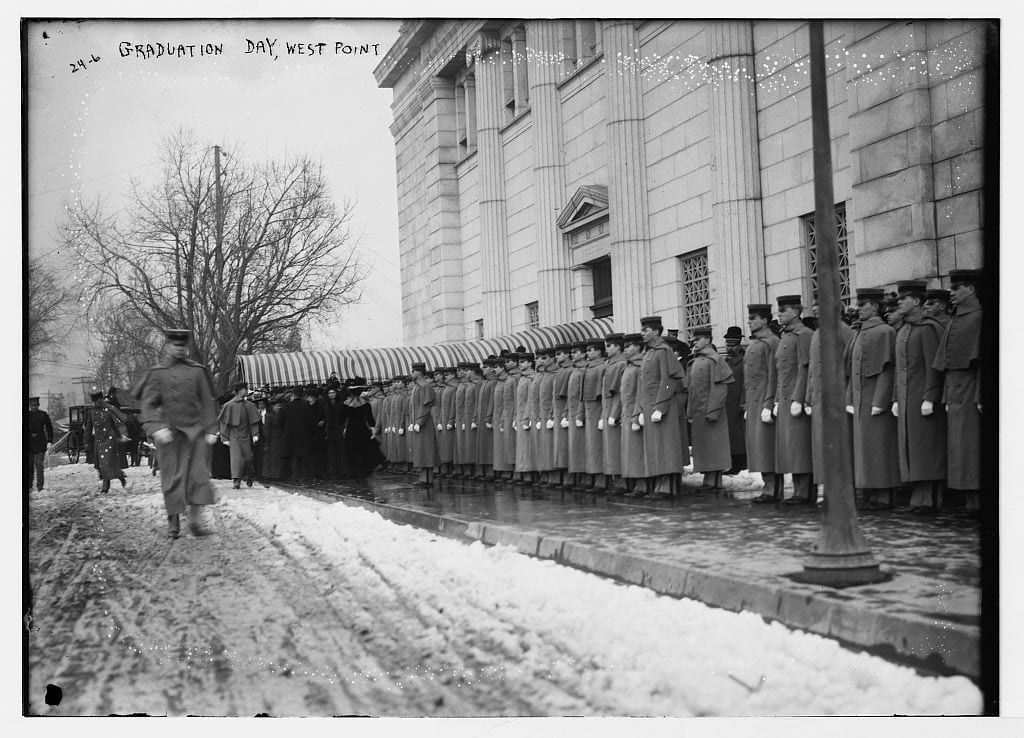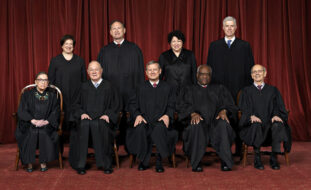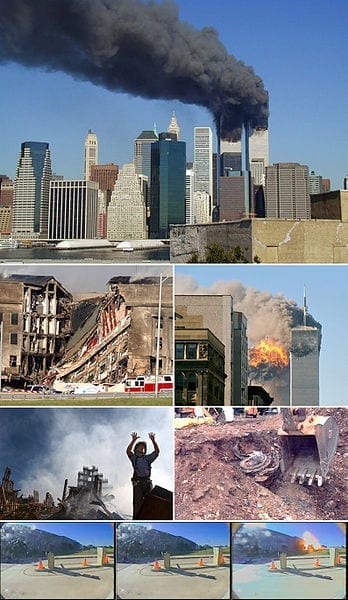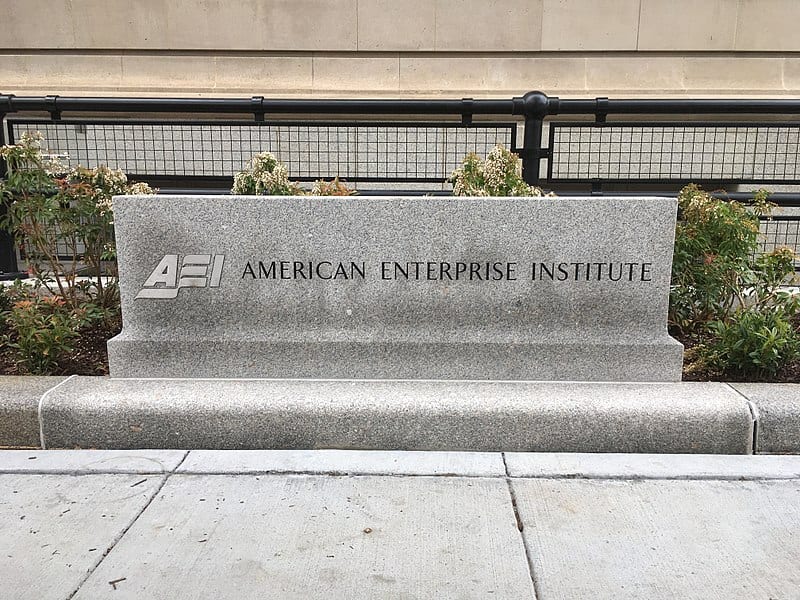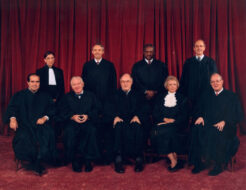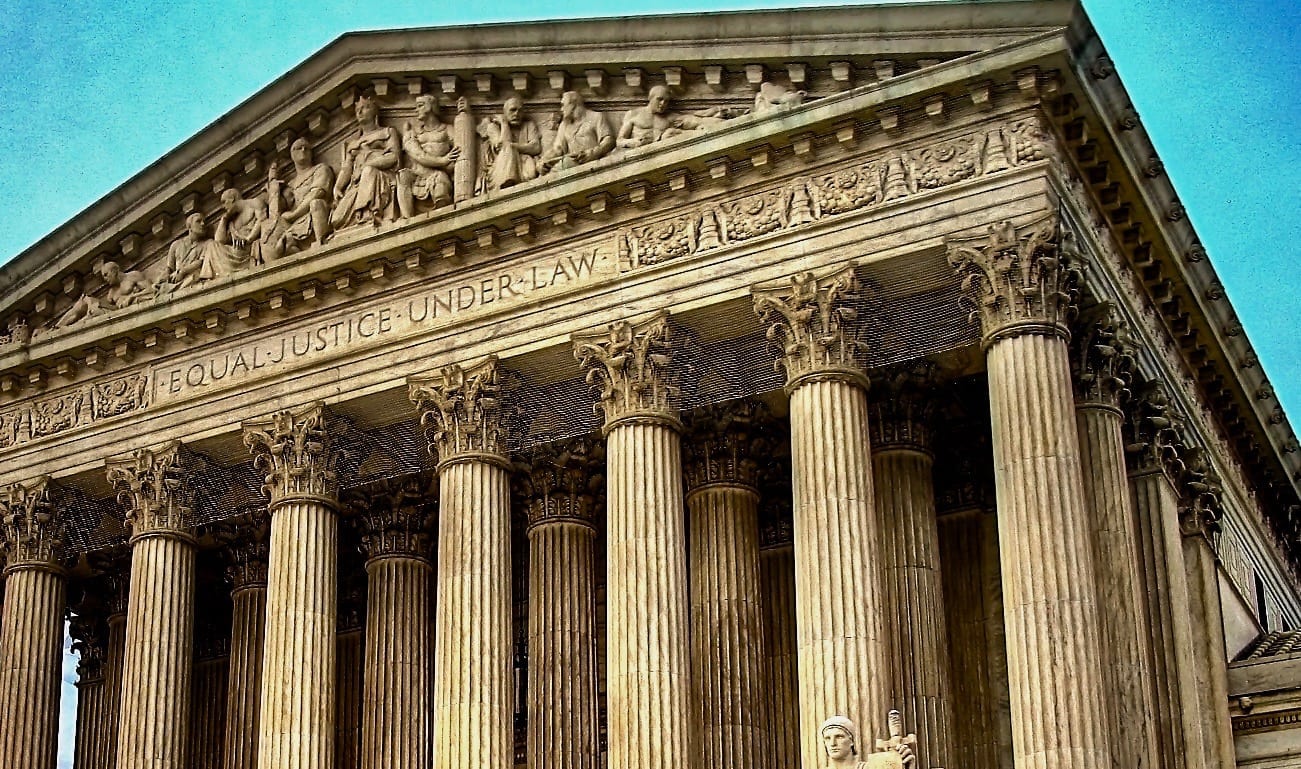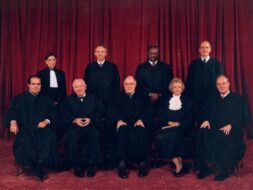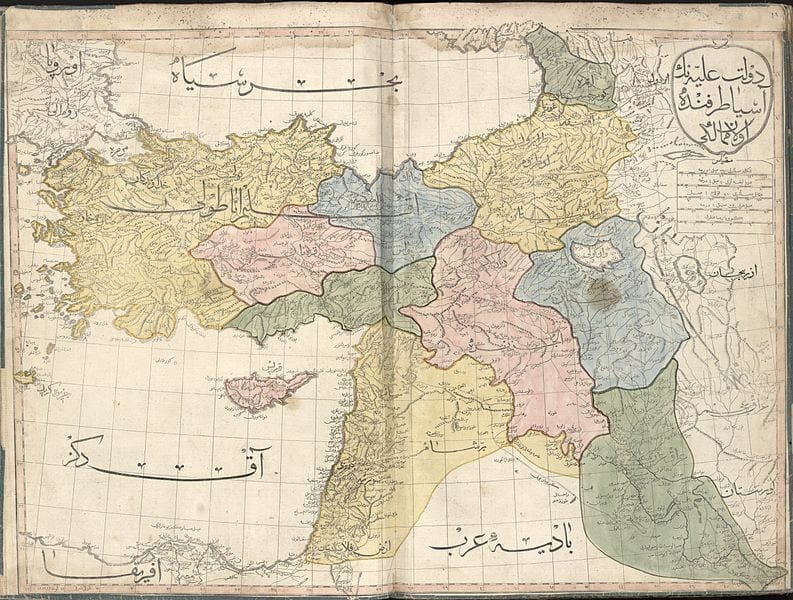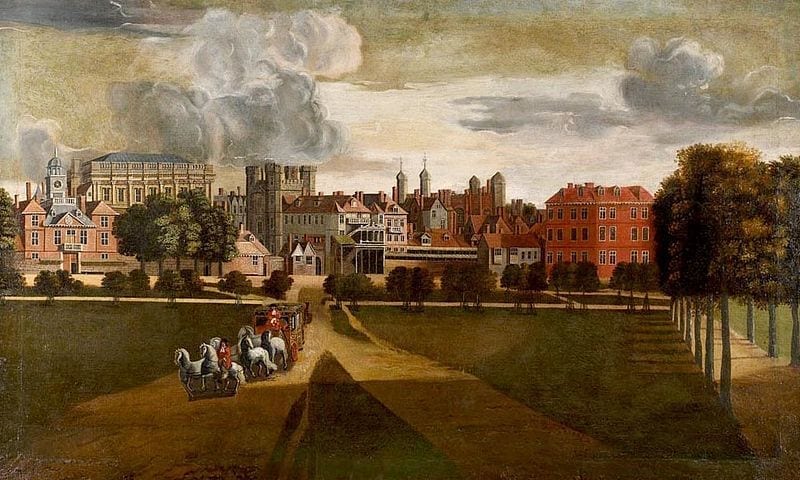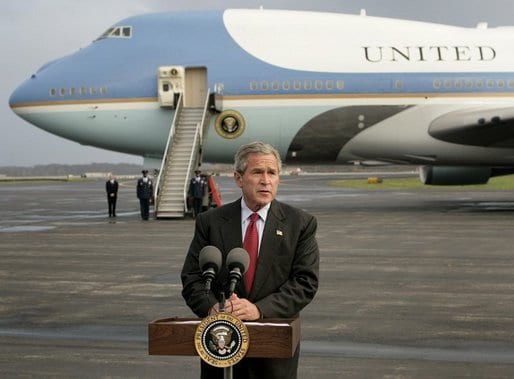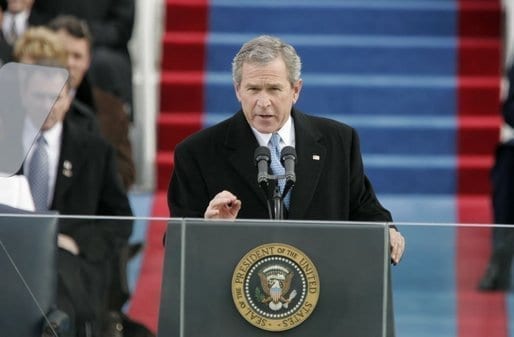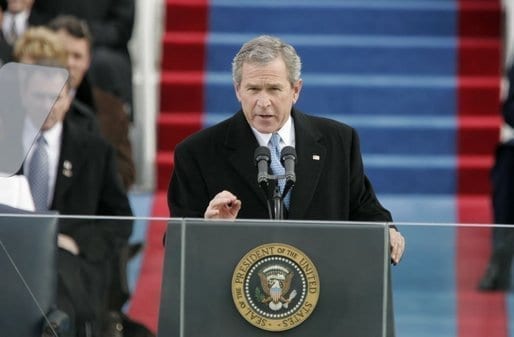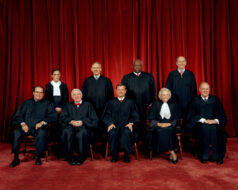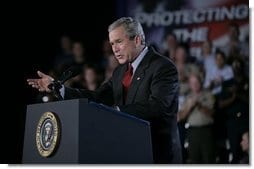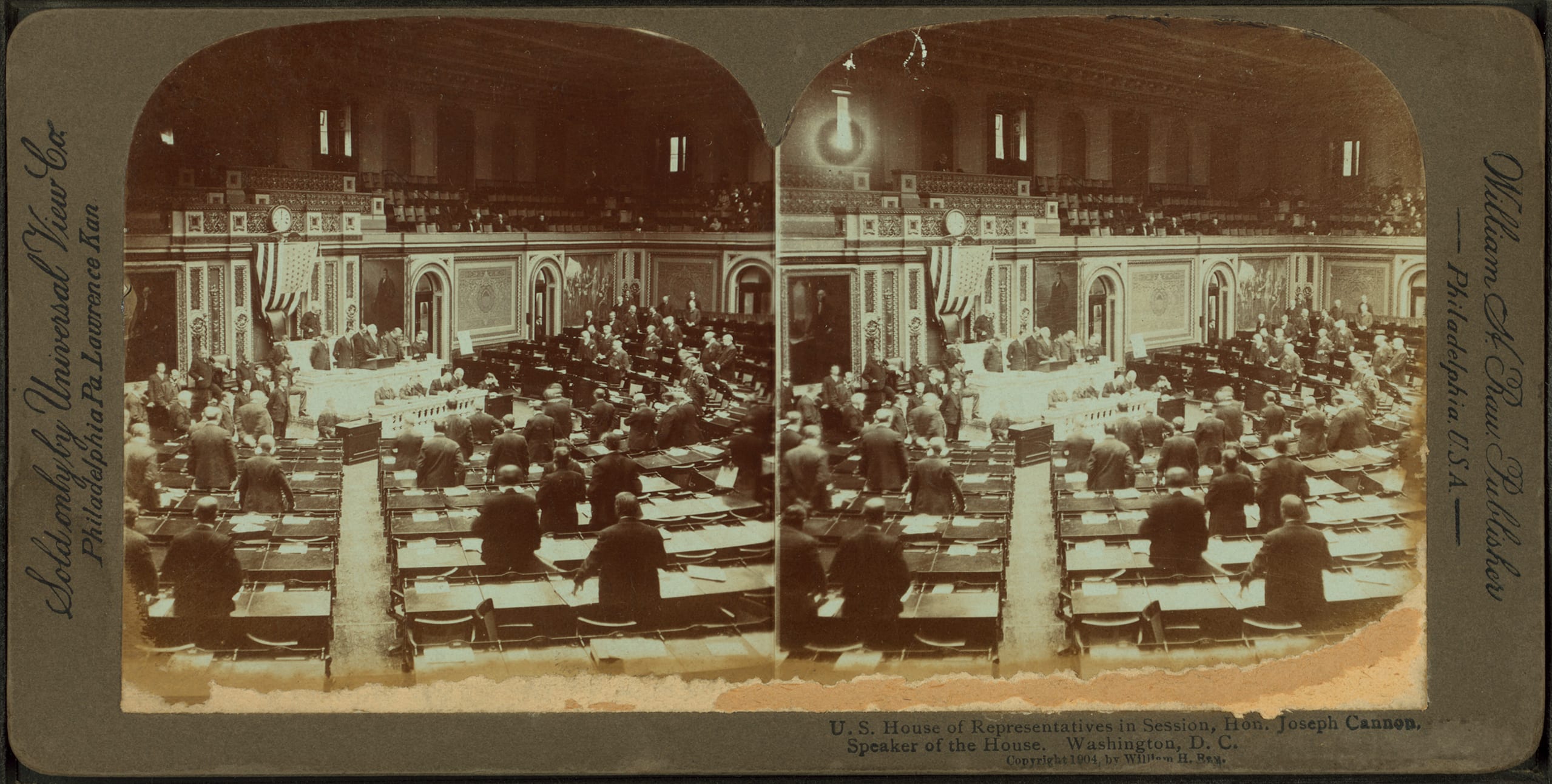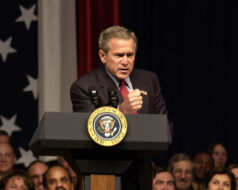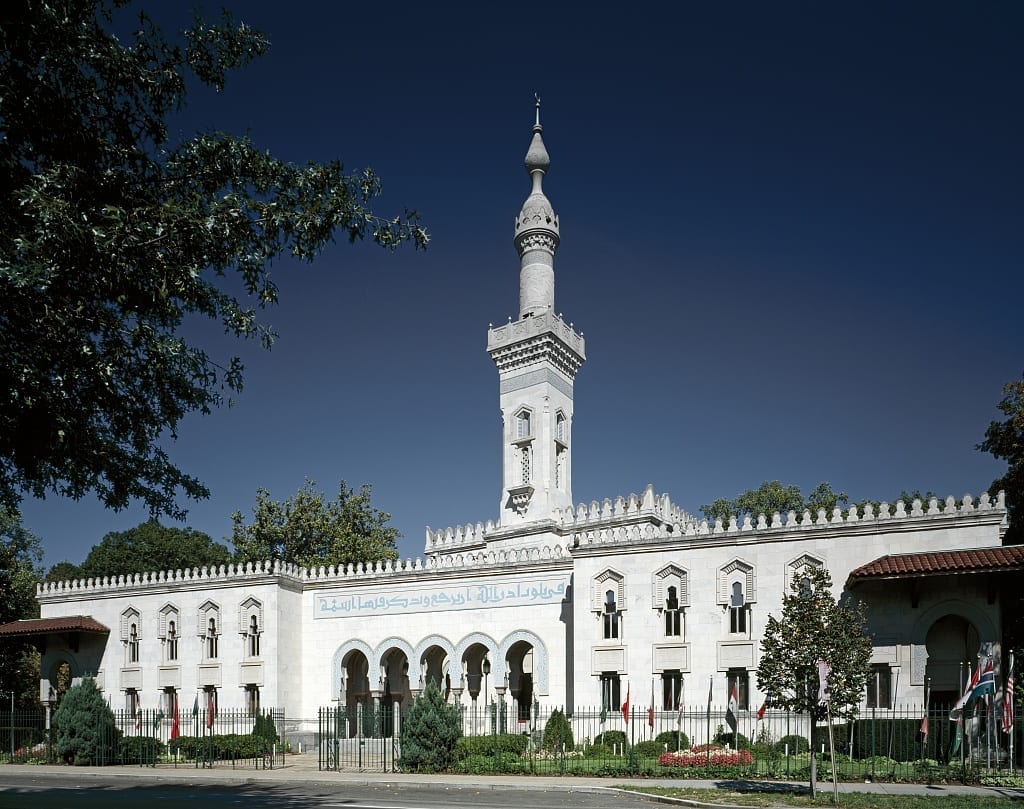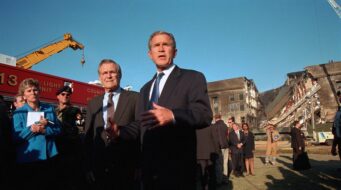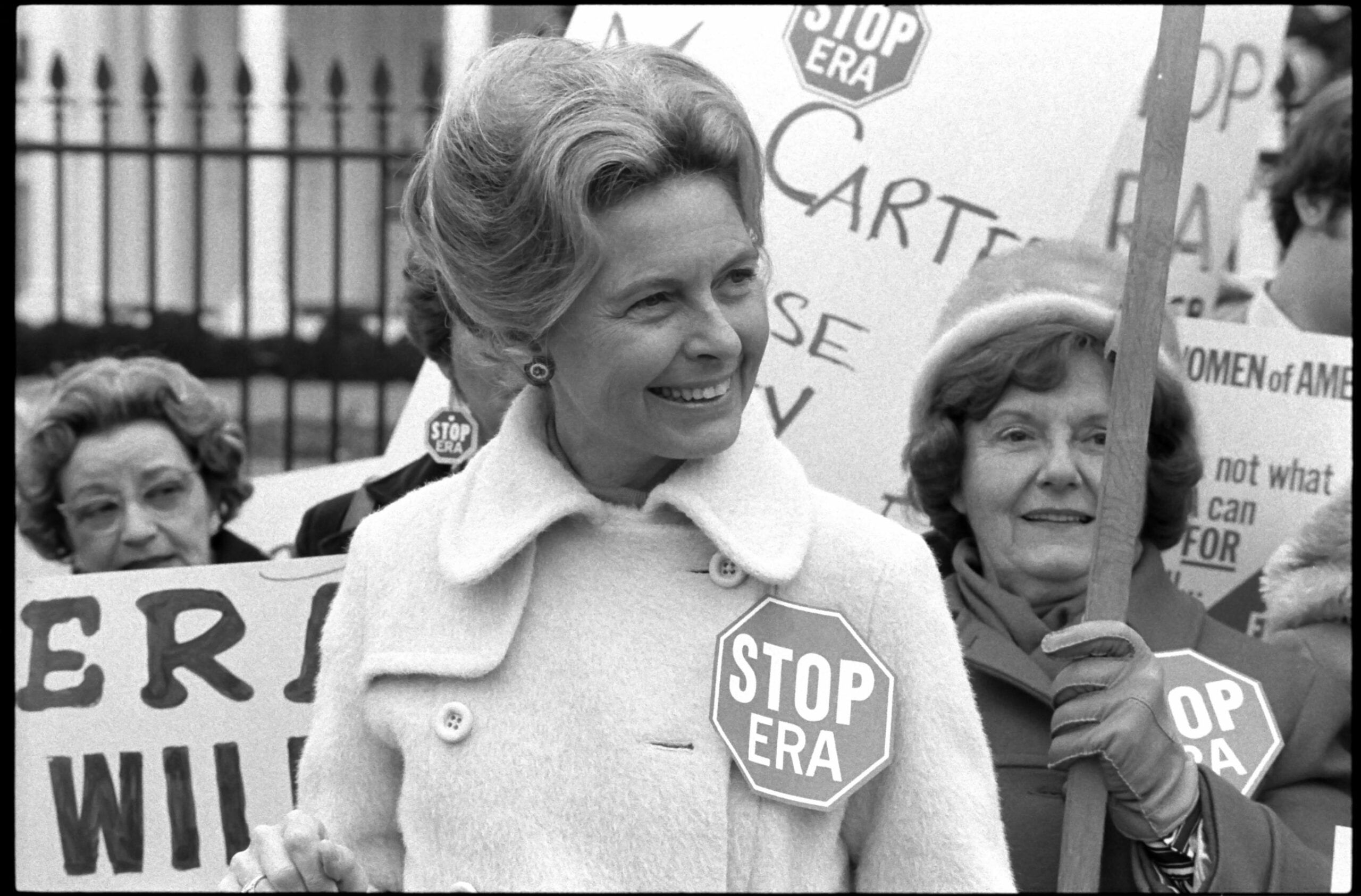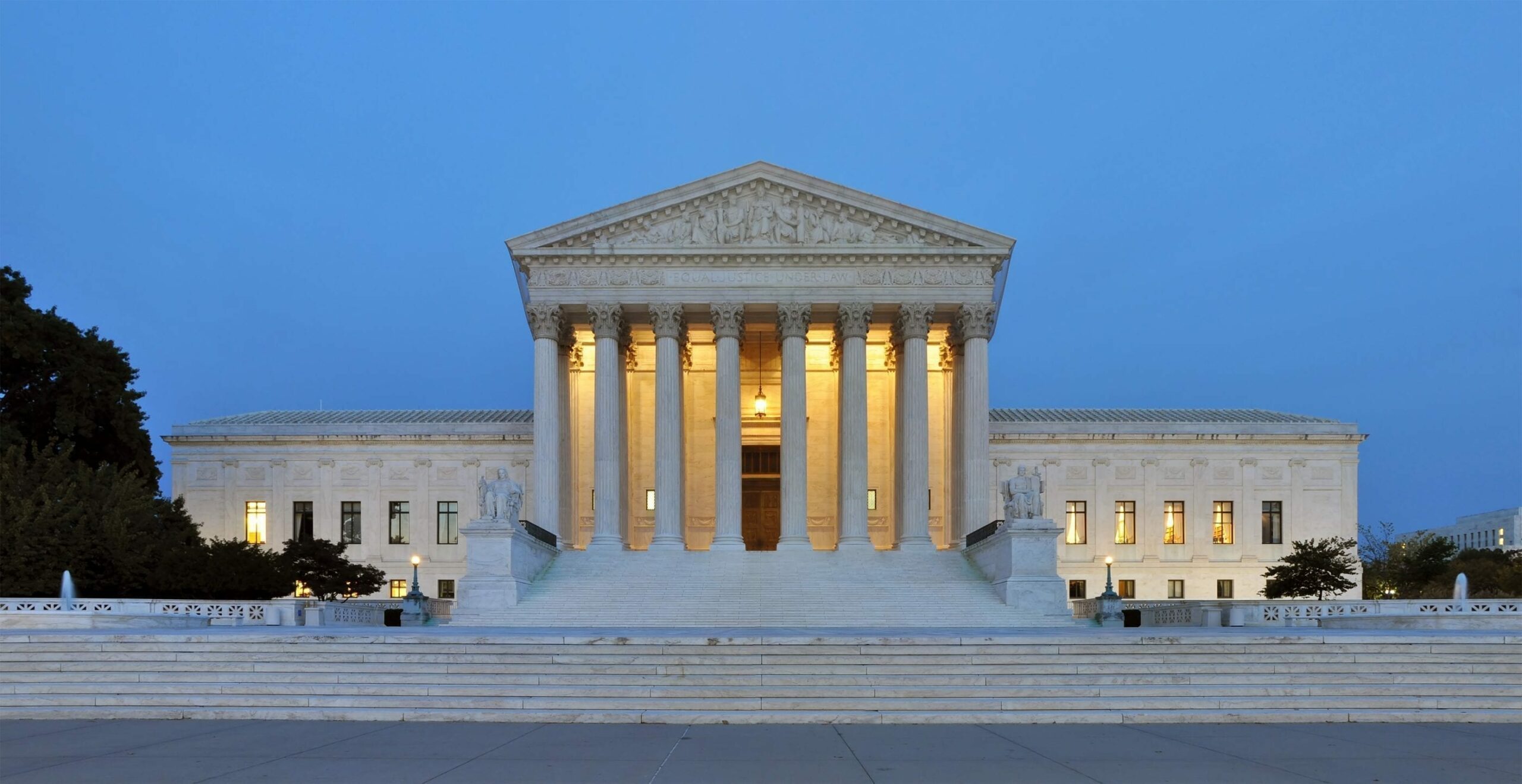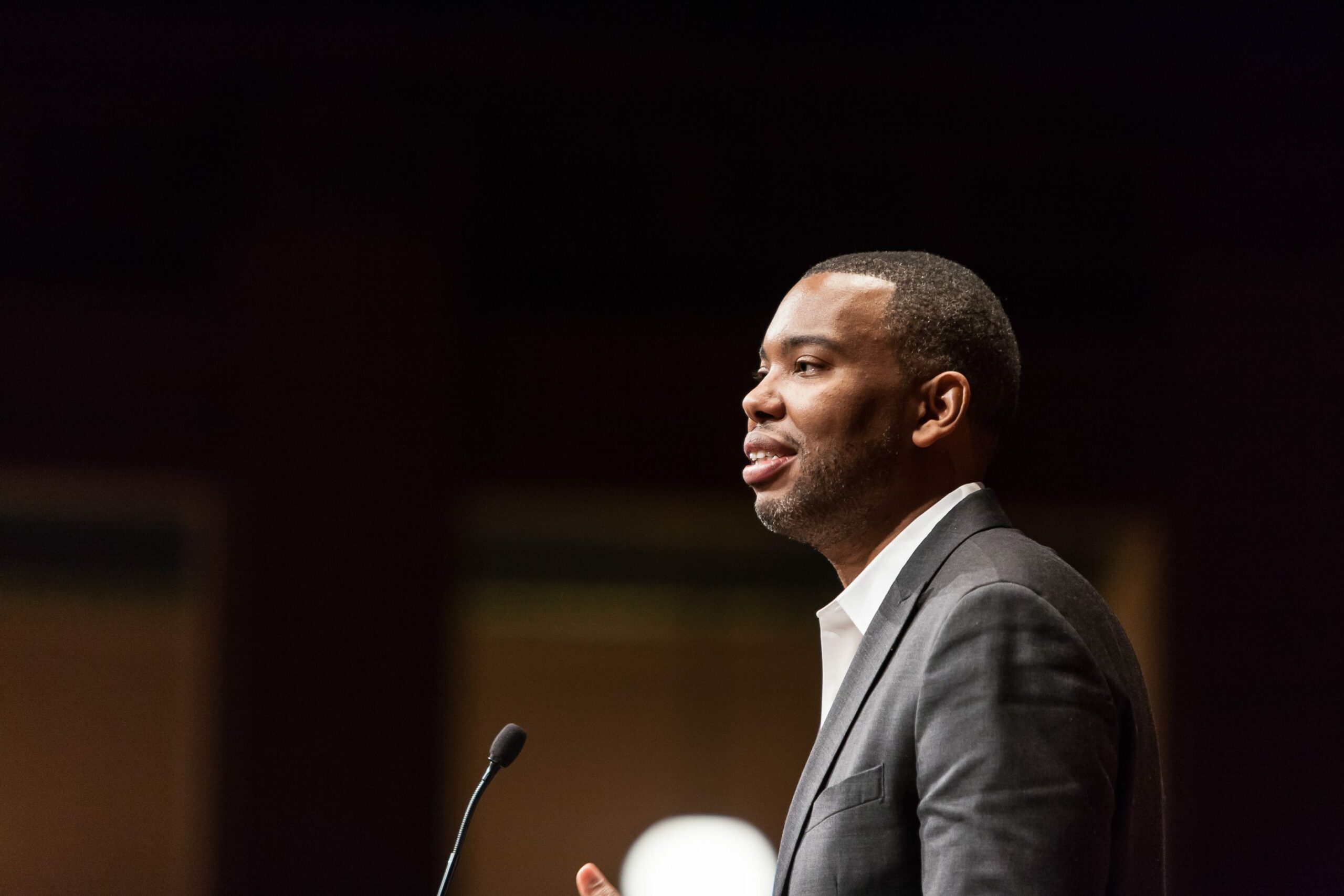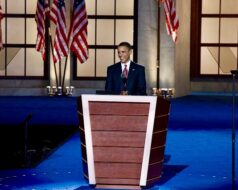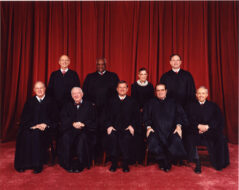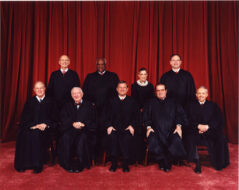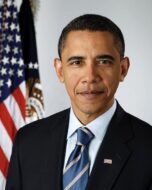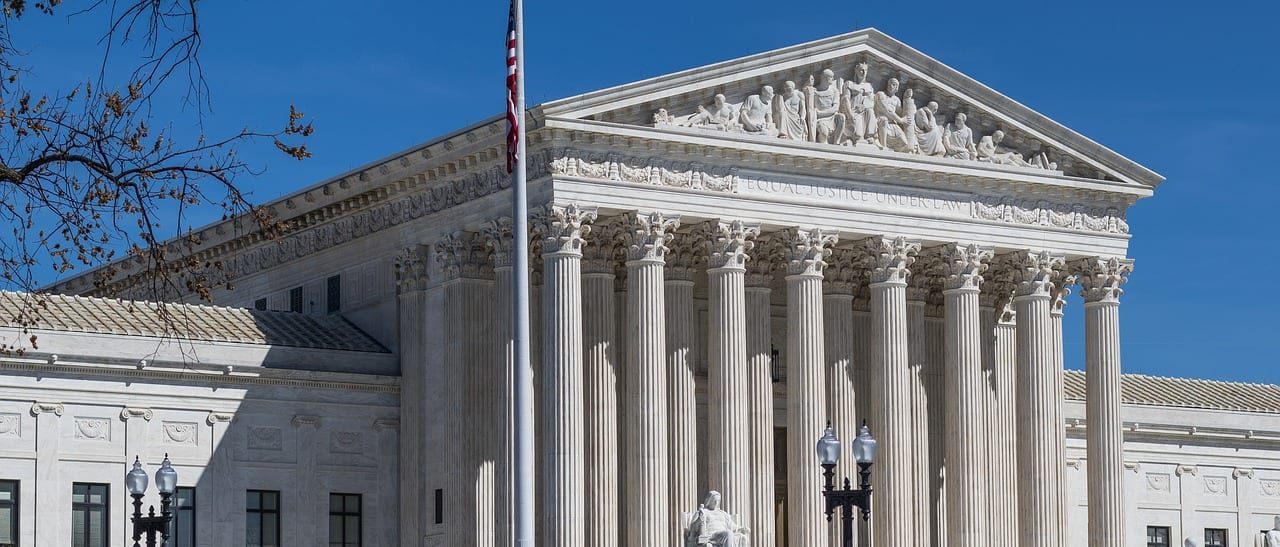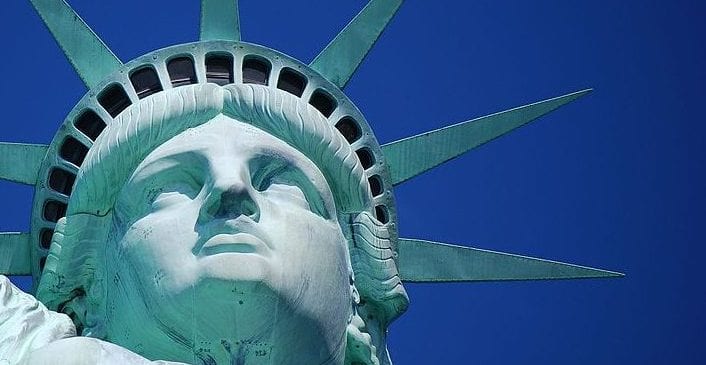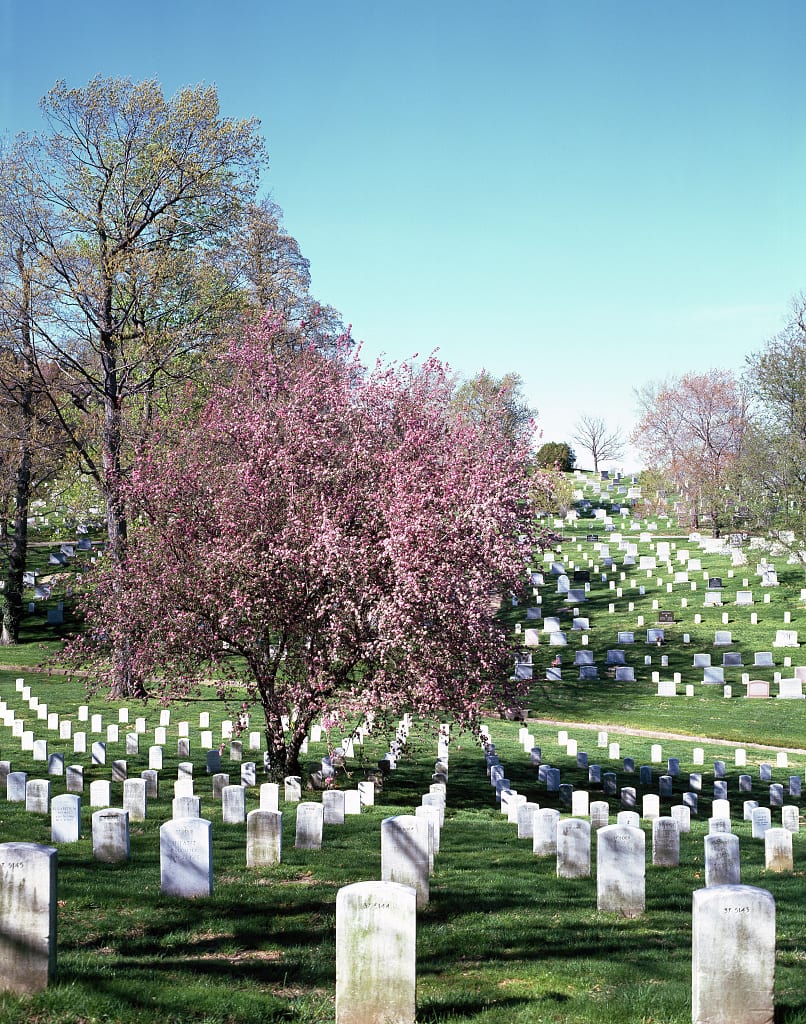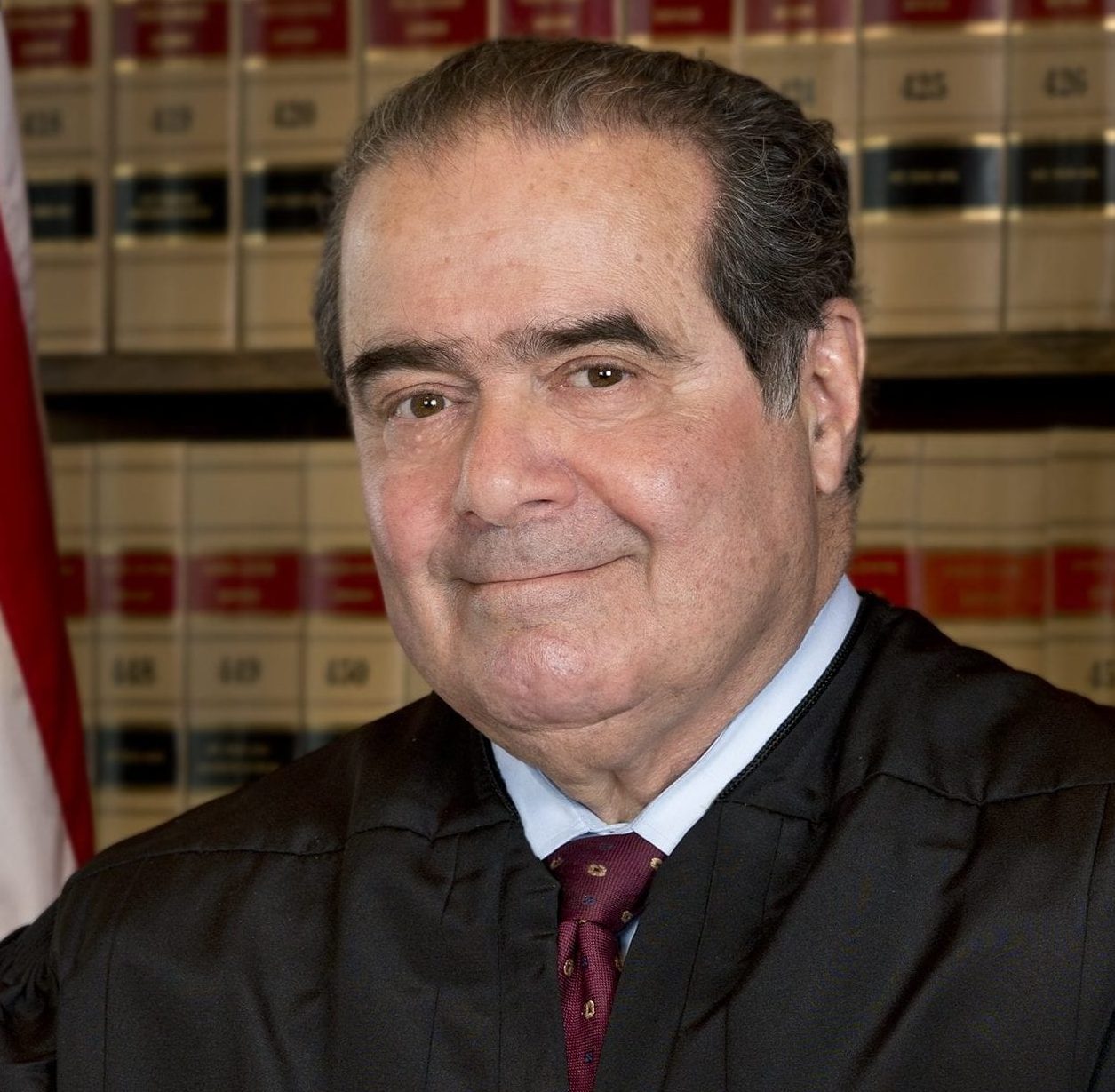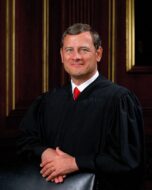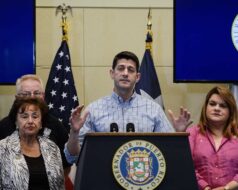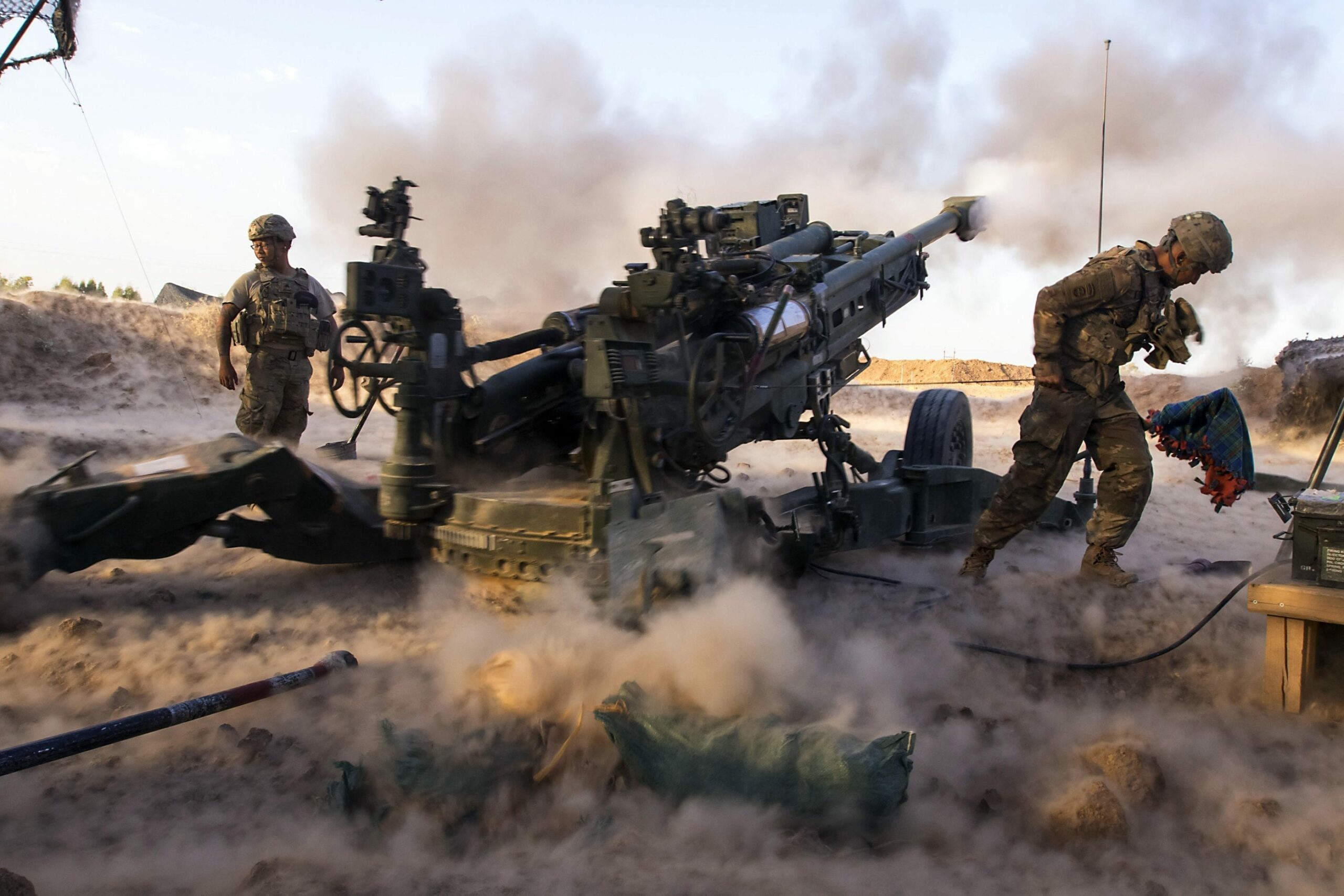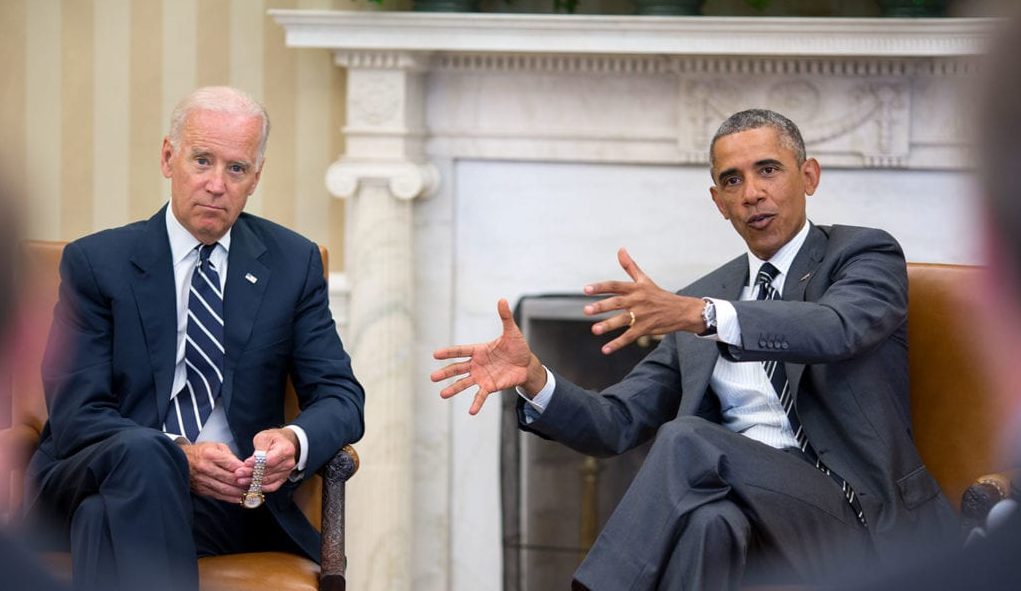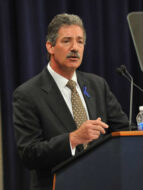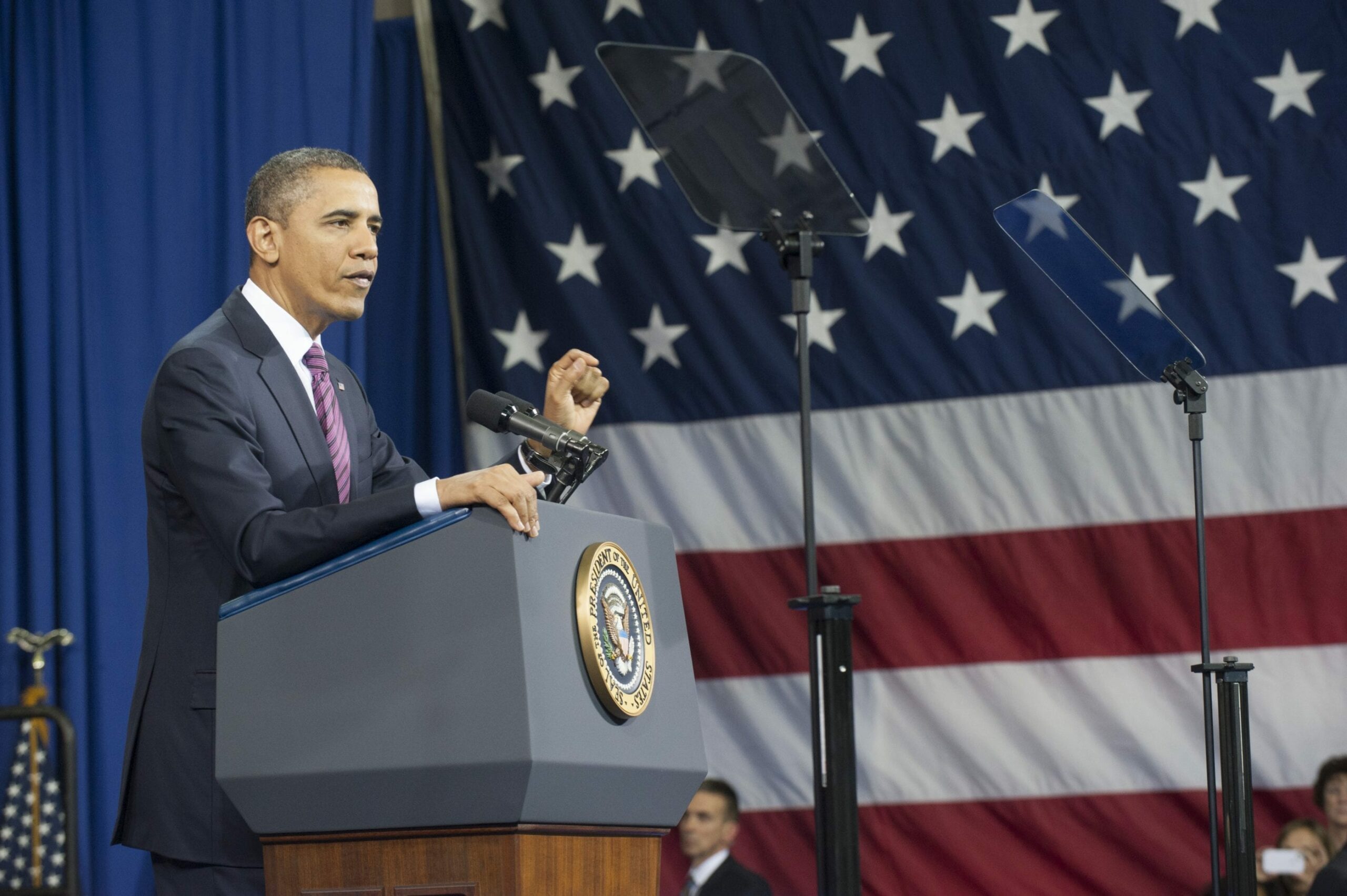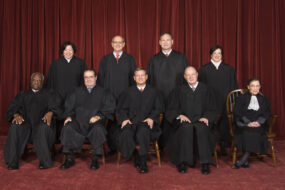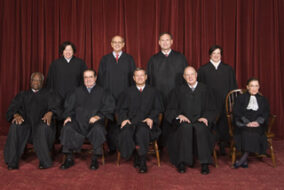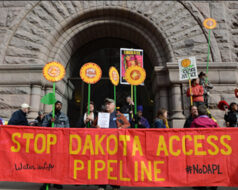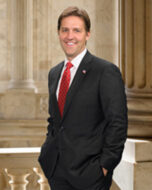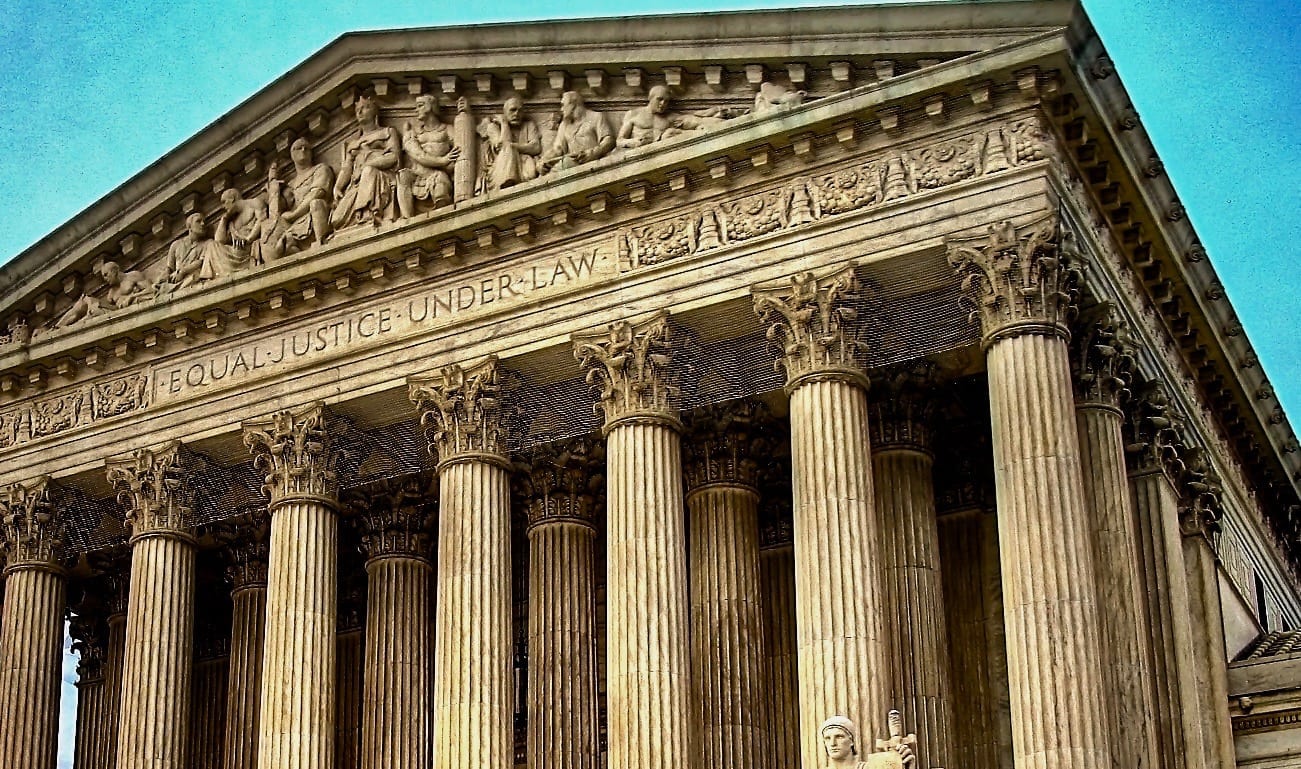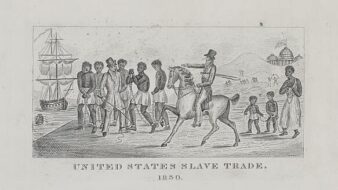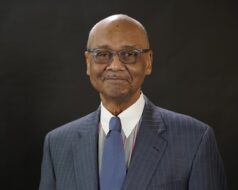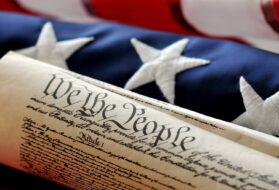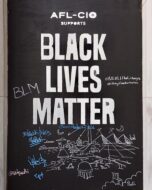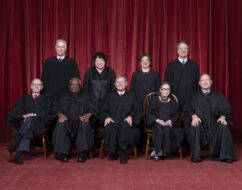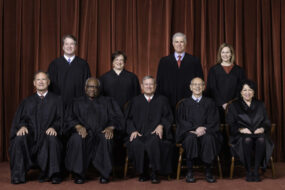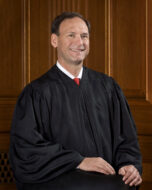Introduction
With a 7-2 vote, this controversial case recognized the Cakeshop owner’s religious free exercise right in his refusal to produce a custom-wedding cake for a same-sex wedding. Specifically, the Court found flagrant anti-religious bias displayed by two members of the Colorado Civil Rights Commission, which initiated proceedings against the Cakeshop. Given the focus on facts, whether the ruling will have any effect on other religious free exercise claims may be doubted. We reprint only an excerpt of Justice Clarence Thomas’s concurring opinion, which anchored the Cakeshop owner’s refusal on his free expression rights, possibly giving him a stronger defense than his religious free exercise claim, which the Court here allowed only because of the Colorado agency’s bias. Omitted are Justice Anthony Kennedy’s Court opinion, Justice Elena Kagan’s concurrence, Justice Neil Gorsuch’s concurrence, and Justice Ruth Bader Ginsberg’s dissent.
—Ken Masugi
Justice Thomas, with whom Justice Gorsuch joins, concurring in part and concurring in the judgment.
I agree that the Colorado Civil Rights Commission (Commission) violated Jack Phillips’ right to freely exercise his religion. . . .
While Phillips rightly prevails on his free-exercise claim, I write separately to address his free-speech claim. . . .
I
. . . When [the Massachusetts public-accommodations law] required the sponsor of a St. Patrick’s Day parade to include a parade unit of gay, lesbian, and bisexual Irish-Americans, the Court unanimously held that the law violated the sponsor’s right to free speech. Parades are “a form of expression,” this Court explained, and the application of the public-accommodations law “alter[ed] the expressive content” of the parade by forcing the sponsor to add a new unit.[1] The addition of that unit compelled the organizer to “bear witness to the fact that some Irish are gay, lesbian, or bisexual”; “suggest . . . that people of their sexual orientation have as much claim to unqualified social acceptance as heterosexuals”; and imply that their participation “merits celebration.” While this Court acknowledged that the unit’s exclusion might have been “misguided, or even hurtful,” it rejected the notion that governments can mandate “thoughts and statements acceptable to some groups or, indeed, all people” as the “antithesis” of free speech.
The parade in Hurley was an example of what this Court has termed “expressive conduct.”. .
II
A
The conduct that the Colorado Court of Appeals ascribed to Phillips—creating and designing custom wedding cakes—is expressive. Phillips considers himself an artist. The logo for Masterpiece Cakeshop is an artist’s paint palate with a paintbrush and baker’s whisk. Behind the counter Phillips has a picture that depicts him as an artist painting on a canvas. Phillips takes exceptional care with each cake that he creates—sketching the design out on paper, choosing the color scheme, creating the frosting and decorations, baking and sculpting the cake, decorating it, and delivering it to the wedding. Examples of his creations can be seen on Masterpiece’s website. See http://masterpiececakes.com/wedding-cakes (as last visited June 1, 2018).
Phillips is an active participant in the wedding celebration. He sits down with each couple for a consultation before he creates their custom wedding cake. . . . He discusses their preferences, their personalities, and the details of their wedding to ensure that each cake reflects the couple who ordered it. In addition to creating and delivering the cake—a focal point of the wedding celebration—Phillips sometimes stays and interacts with the guests at the wedding. And the guests often recognize his creations and seek his bakery out afterward. Phillips also sees the inherent symbolism in wedding cakes. To him, a wedding cake inherently communicates that “a wedding has occurred, a marriage has begun, and the couple should be celebrated.”. . .


